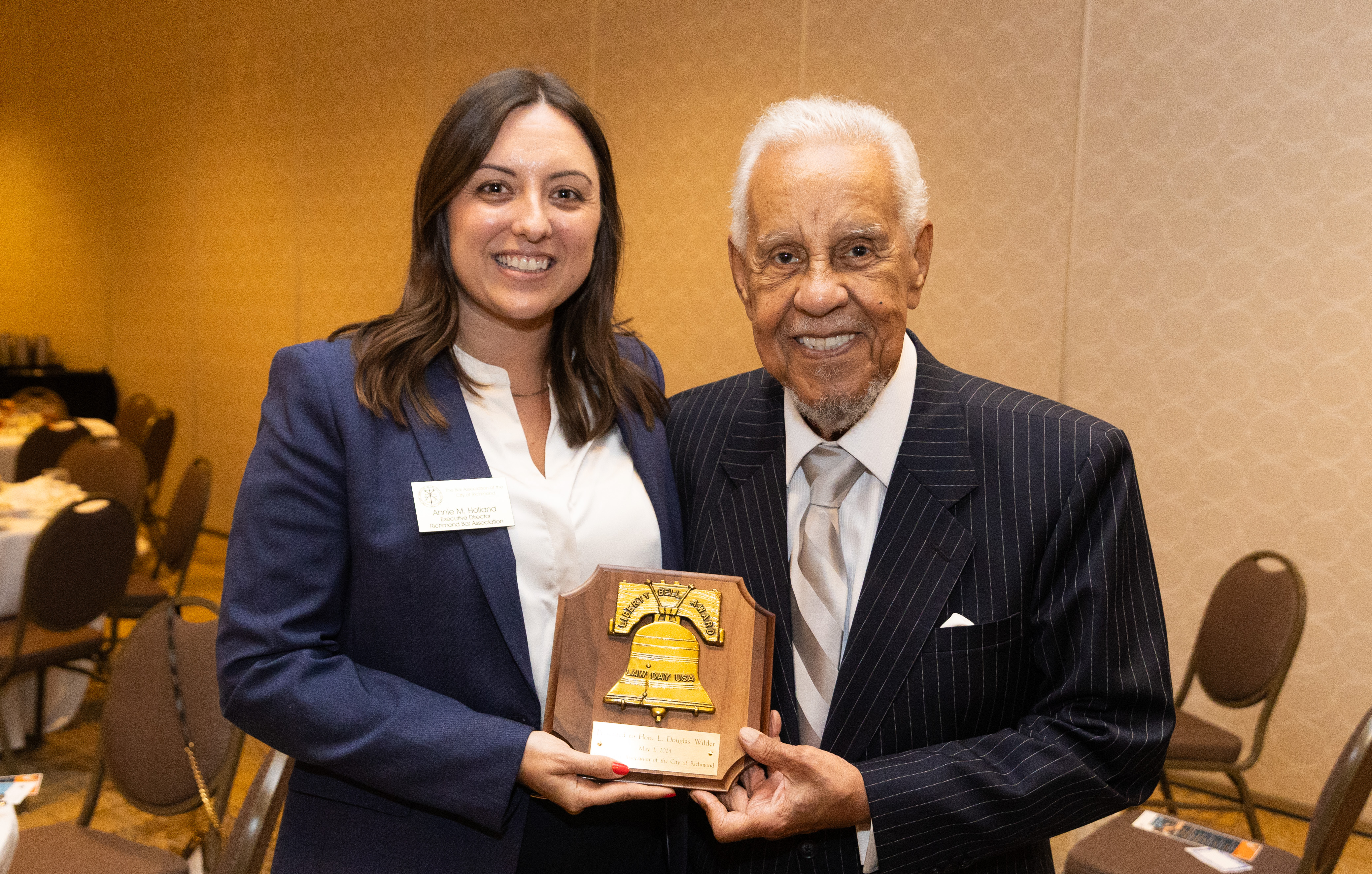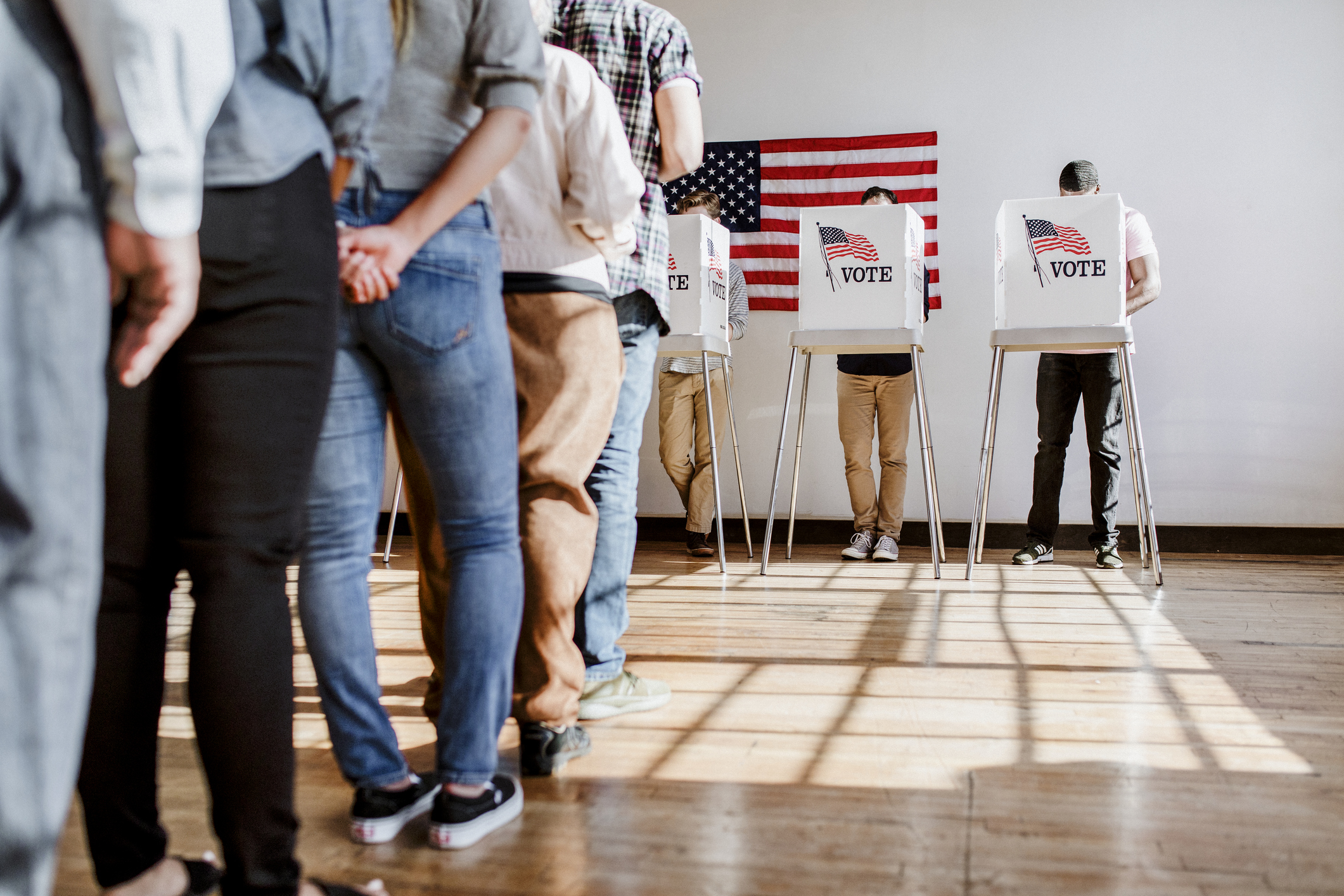Governor L. Douglas Wilder, a distinguished professor at the school that bears his name, is the recipient of the 2025 Liberty Bell Award.
The Liberty Bell is awarded to a distinguished individual who promotes the significance of democracy and the rule of law, encourages citizens to recognize their duties and rights, and contributes to the betterment of government institutions.
“Long before he made history, he began his career right here in Richmond as a practicing attorney and member of the Richmond Bar Association,” said Annie Holland, executive director of the Richmond Bar Association. “Honoring him now brings that full circle.”
Award nominator William Egen, a policy analyst for the Virginia Commission on Youth, noted that Governor Wilder’s role is a symbolic reminder for Richmond Bar Association members to continue to advocate for change through the power of the law.
“The award means a great deal to me because it’s still showing the importance of America’s quest for freedom. The word ‘liberty’ itself means free, and to this extent, the law has been the mechanism and vehicle that had to be available to bring about equality, which those who believe in it continue to honor.”
– Governor L. Douglas Wilder
Governor Wilder passed the bar exam in 1959 during a time of immense racial discrimination. At that time, he explained, only one African American per year was permitted to pass the Virginia Bar Exam. He then established a successful legal practice in Church Hill, where he was born and reared. In 1969, he entered the political arena, becoming the first African American elected to the Virginia State Senate since Reconstruction. He made history again in 1986 and 1990, becoming the nation's first African American lieutenant governor and later, governor, since that era. Wilder went on to become Richmond’s first directly elected mayor in 2009, carrying every voting district.
“Governor Wilder’s journey — from being denied admission to the bar explicitly based on race to receiving the Richmond Bar Association’s Liberty Bell Award — is a testament to his steadfast commitment to justice and equality,” said Susan T. Gooden, dean of the Wilder School. “His life’s work has trampled barriers and paved the way for future generations to pursue justice with both courage and conviction.”
Throughout his career, Governor Wilder continued to open doors that had long been locked. Among his proudest achievements was securing the election of African American judges to the bench in Virginia, including the Honorables Willard Douglas and James Sheffield, historic firsts in the commonwealth’s judicial system.
“Governor Wilder has always had a passion for staying involved and committed to improving the community,” Egen shared in his remarks during the award ceremony. “The law, which is where he started his career, has been the throughline that has kept that passion ignited.”
Egen notes that it is fitting that the last chapter of Governor Wilder’s autobiography, “Son of Virginia,” is entitled “Ringing the Bell.” Governor Wilder wrote that the Emancipation Proclamation, issued 162 years ago, was the first ringing of the bell. The second ringing came a century later with Brown v. Board of Education, the Civil Rights Act, and the Voting Rights Act.
Yet the question remains, Egen posed to the crowd, “How do we keep the bell ringing — and whose arms will lift to pull the ropes?”



.jpg)